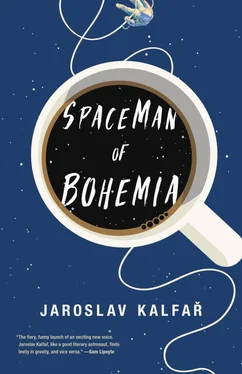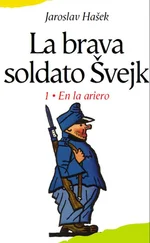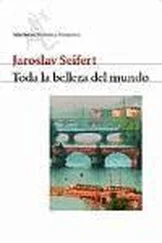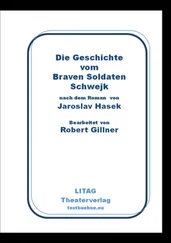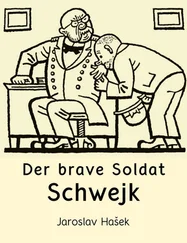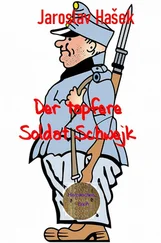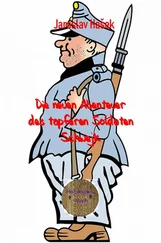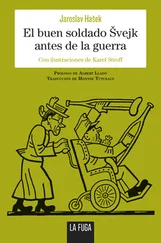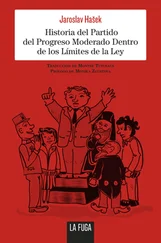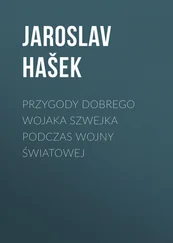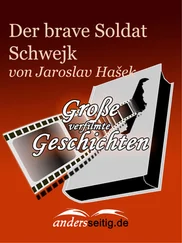My grandfather stands up and walks over to the pantry. He takes out a gray plastic box and sets it on the living room table, glancing at me often. He removes his flintlock pistol from the box along with a vial of gunpowder and a bag of lead balls, scratches off a bit of rust with his fingernail, and blows into the barrel opening. Sliding the pistol under his belt, he pulls the bottom of his flannel shirt over it, and puts the ammunition in his front breast pocket. Šíma studies him with head tilted. Grandpa grabs his hiking stick and heads outside, steering off the main road and toward the vacation cabins by the lake. When he is out of view, I rise, slap my wound gently to ease the itching, and pick up my own hiking stick, the one Grandpa carved for me when I was six. Grandma will be in town buying books for a while longer, and so there is no one left to keep me on the couch. As I step outside, Šíma emits a subtle whine. He has never liked being alone.
Most people in Středa claim that the vacation cabins are their own village, as the cabin population has nothing in common with the people of the village. The houses stand far apart, each one surrounded by rich layers of trees, bushes, gardens. There must be at least two dozen of them by now, these new families having flowed in to embrace the weekend country life, teenage daughters tanning by inflatable pools, teenage sons hitting trees with sticks and fishing in the lake, fathers grilling with their legs spread wide apart and mothers drinking wine and reading on porches. The village kids say that Shoe Man’s house is far away from the others, built at the edge of the forest, and that no one ever sees him arrive or depart—one day, he is simply there, and the next, the windows are shuttered and the heavy oak doors locked and secured. He does not purchase his goods in town, does not go to the pub, does not go for strolls on the main road.
Finally, I have caught up with my grandfather. He stalks through the front gate and stomps through the wildly overgrown grass covering the front lawn. A great cherry tree looms above the house, its products not yet ripe but already violated by bird pecks and weighing down the crown. The cabin itself is humble compared to the others—it is small, with a tin roof, and does not possess a satellite dish, porch, garage, or pool, the popular amenities of the other Prague weekenders. Judging from the faded texture of the wooden walls and a collapsed chimney, the cabin must have been here for a long time, perhaps decades, but I never saw it during the spying raids I took part in when some of the village children still tolerated me. The house has appeared before me as suddenly as Shoe Man and his backpack, a part of our lives that was always present but, until now, concealed.
I pause before the gate. Perhaps it would be best to allow my grandfather to do whatever he has come to do. What could the letter have said to make him place the gun under his belt? If he kills, we will lose him. It will be down to me, Grandma, and Šíma, a clan too small to amount to anything. We need Grandpa. I need his nightly coughing fits to fall asleep; I need the musk coming from his work shirts to feel I have a home.
I walk inside the house, the pain in my calf shooting into my knee, the tips of my fingers trembling. The front door creaks as I enter. The inside of the cabin is as sad and barren as the exterior—a plastic living room table with an empty beer bottle, a stove, shaggy carpet underneath a chair to my left on which my grandfather sits, the pistol in his lap. Across from him, Shoe Man leans back on a hideous orange couch, covered by a blanket. At his feet lies a black German shepherd, head resting on its paws, ears perked up. The space is so small that I could take two steps and touch any of them.
“Jakub, go back home,” my grandfather says. “I won’t tell you twice.”
“No,” I say.
“I take it knocking is not a part of your family’s customs?” Shoe Man says, stretching out his right arm. He seems relaxed, pleasantly disheveled, as if he has just woken up from a nap.
“If I ever needed you to listen to me, it’s now. Go home,” Grandpa says.
I walk over to the chair next to Grandpa and take a seat. I can hear his dentures grinding. The dog watches me carefully.
“If you want me home, you’ll have to drag me there,” I say.
“I like him,” Shoe Man says.
“You keep your mouth shut,” Grandpa says.
“Yes, of course, I shouldn’t speak inside my own house. What difference does it make whether the boy is here? You came here to talk, not to shoot, despite the show you’re putting on. Besides, shouldn’t the boy know what kind of blood flows through his veins? Don’t shelter him from what he’s bound to become.”
“I’ll shoot you in the knee,” Grandpa hisses.
“My dog will rip out your throat.”
I feel as though I’m breathing too loudly, and try to pace myself. But the more I try, the more fatigued my lungs become, until I am heaving and bending over. Grandpa puts his hand on my back.
“We can do this another time,” Shoe Man says. “Or, we can speak calmly, without threats.”
Grandpa pulls the crumpled letter from his pocket. “Will the dog pounce if I hand this to you?”
“I know what’s in it,” Shoe Man says.
“It tells me here that our house was confiscated by the Party from you in nineteen seventy-six, and given to my family as part of the redistribution of property to Party officials.”
“Yes.” Shoe Man doesn’t seem amused by this, does not smile, or gloat. He has the solemn, neutral look of a weather anchor announcing an impending storm that might destroy a city or simply pass into the ocean.
“My great-grandfather built the house with his factory wages before the industrial revolution,” Grandpa says. “This is a lie with a bureaucrat’s stamp on it.” He restlessly taps his finger on the pistol handle. A tic I have never seen, as my grandfather is not a nervous man. He wipes his sweaty palms on his shirt.
“And doesn’t that get us right to the heart of the problem, Mr. Procházka? It doesn’t matter. It doesn’t matter that your great-grandfather dug the basement with his own bare hands, that the sun burned his forehead as he coated the roof. The document in your hand states that the house was stolen from me and given to you as reward for your son’s work. So the state declares. You have two weeks to leave and hand the property over to its legal owner.”
Grandpa reaches into his front pocket and pulls out a pack of cigarettes. As he lights one up, Shoe Man reaches for the thermos in front of him and pours a tall glass of milk.
“Sure, you can smoke in here,” Shoe Man says. “No problem. Would you care for some milk? Jakub? It is still warm, fresh out of the udder.”
For the first time in two weeks, I do not feel the pain of my wound. I feel no physical sensation whatsoever aside from the difficulty of breathing. How can we do it so effortlessly all day and all night? Five short breaths, one long. Three long, a dozen short. I count, tap my finger on my knee, and try to synchronize with Grandpa’s tapping, focus all my brainpower on easing myself back into the classic inhale, exhale, one, two, but I am no longer the master of my own lungs.
“Don’t talk to him,” Grandpa whispers through clenched teeth, and I’m not sure whether he’s telling me or Shoe Man. He rises and steps forward, and Shoe Man holds his snarling dog back by the neck skin.
“I’ve thought of this moment for years,” Shoe Man says. “First, of course, when I did my time, four years in political prison. The food was salt and mush out of a can, Spam on Sundays, with hard rye bread and bleached water. My cellmate jacked off while he watched me sleep. He said that in the dark my jawline reminded him of his wife. He was some artist who’d painted genitalia into Brezhnev’s eyebrows. This is where I decided I would come looking for your son someday. The Party moved my mother and father out of the apartment where they’d spent most of their lives, put them into one of those cramped studios with the other exiled families of political prisoners. When they found out we were of Hungarian heritage, they even considered putting them on a train to Budapest. They took most of our furniture and cut my parents’ retirement. I can only be thankful I didn’t have children—imagine what the Party would have done to them. Or to a wife. My life was taken from me by electrical currents and a signature on a statement of condemnation, Mr. Procházka. My family was banished so that yours could flourish. Now, I am the one with friends. I’m on the winning side.”
Читать дальше
